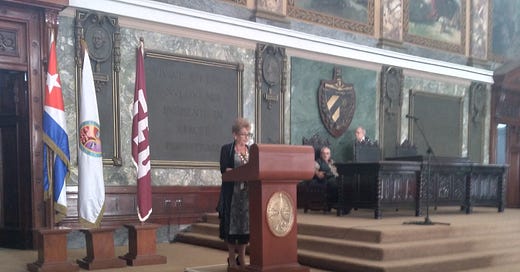Political Science from the South
Cuban scholars forge unified social thought tied to political practice
On November 15-17, 2023, the Cuban Society for Philosophical Investigations held its annual conference on “Political Science from the South.” The Conference included two simultaneous Commissions. One on Political Science from the South, consisting of seven panels during the three days. And the other on “Philosophy for Emancipation,” consisting of five panels. The participants in the conference included nine delegates from Mexico, three from Puerto Rico, two from Chile, and one each from Syria, the Dominican Republic, Haiti, Ecuador, and the Democratic Republic of the Congo.
The Cuban Society of Philosophical Investigations was founded in 1983 by Dr. Thalía Fung and Cuban scholars associated with her writings. When the Soviet Union collapsed, Dr. Thalía and others considered that it may have been caused in part by inattention to Lenin’s teaching on the need to study political science. Undertaking study of Western political science, the Cuban scholars learned that it was…


